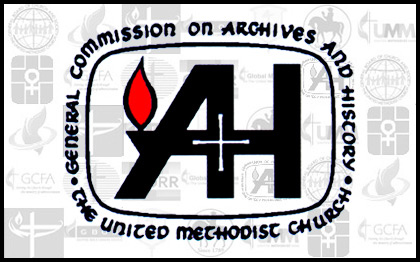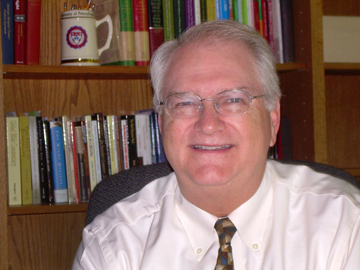1. What would the church miss if your agency no longer existed?
If the work ceased, the church would lose the professional archiving function that collects, preserves and utilizes the documentary record of the church. The collective memory of the church would be impaired to the point that identity would be lost, vision diminished and ministry impaired. It is through the archival records that a balanced accountability of our denomination's actions is maintained. Without such record keeping, all that the church would have is a short-term memory and focus when dealing with important issues of the day. If the governing structure were eliminated, the advice of well-informed archivists and historians would be lost and accountability would be shifted to those who are not trained in this work.
2. What is your agency's primary mission? How do you accomplish this in the most effective manner?
The primary mission is to attend to all the historical interests of the denomination and to collect and process historical materials related to all aspects of the international work of The United Methodist Church. We accomplish this with a small, well-trained staff, with increased use of the latest preservation techniques and with the board of 24 directors meeting only once a year.
3. Name at least one exciting thing in which your agency has been involved during the current quadrennium. How does it relate to the Four Areas of Focus?
The agency provides the historical perspective for all the areas of focus. The Commission on Archives and History has created a scholarship to help educate a person of color in archival studies and does excellent leadership training for conference archivists. Much of our excitement comes when a previously unknown collection of materials is turned over to us, such as 1,000 letters from Bishop Gilbert Haven, prominent 19th century abolitionist and holiness leader.
4. How does the average United Methodist pastor or member benefit from your agency's work? Social advocacy? Curriculum? Scholarships? Please give a concrete example, ideally quoting a testimonial from someone outside of your agency.
We service researchers from local churches, annual conferences and the academic community from all over the world. There is rarely a book written on Methodist history that doesn't include acknowledgments of help provided by Archives and History staff. The general secretary supports and maintains contact with various historical organizations. We field both phone calls and emails on a daily basis from local United Methodists searching for ancestors who were involved in the ordained ministry or the mission work of the church. We are able to give them information about those ancestors.
5. How much money and how many employees does it take to maintain the work your agency is currently doing?
The Archives and History budget is about $1 million per year, and we have four full-time permanent employees and one part-time employee.
Learn more: Website of the Commission on Archives and History
For more information, visit the General Conference 2012 website
Like what you're reading? Support the ministry of UM News! Your support ensures the latest denominational news, dynamic stories and informative articles will continue to connect our global community. Make a tax-deductible donation at ResourceUMC.org/GiveUMCom.





